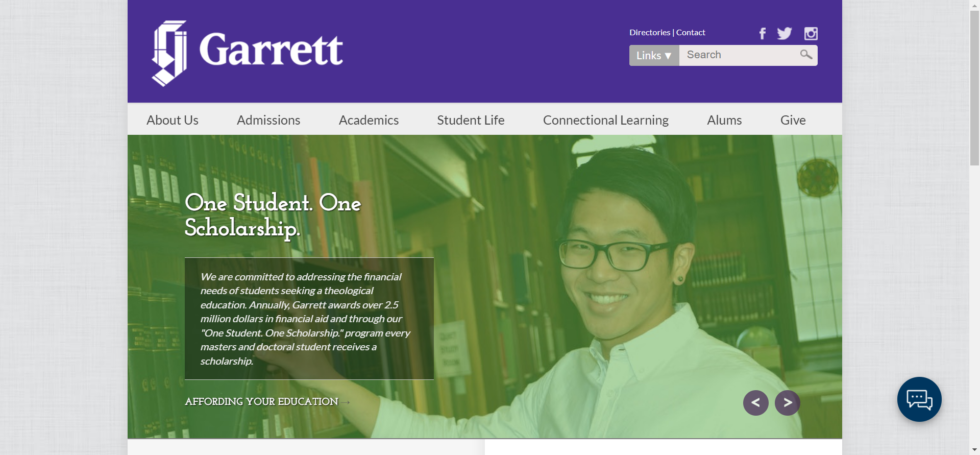Last week, EducatePlus hosted its valuable non-conference online learning sessions. We were lucky enough to chair a session with Taylor Stockdale, Head of School at The Webb Schools in the United States. Taylor’s session, Preparing to Make the Ask, was jam-packed with practical tips on fostering a philanthropic culture for schools. Based on his years of experience working in schools across the world, Taylor created a highly detailed, tangible session — and we’re going to share some of his tips with you today!
But first, a quick introduction to Taylor. With experience across various roles in the academic, marketing, and advancement realms, Taylor holds an impressive 23-year tenure at Webb Schools. Working with alumni and donors over the years, Taylor has become skilled in bringing campaign concepts to life — a skill we’ll delve into below.
So, what’s involved in creating successful fundraising campaigns? Here’s a snapshot of Taylor’s essential ingredients for preparing to make the ask:
- Do your research!
- Understand your prospect’s giving culture
- Develop cultivation strategies
- Include volunteers and school leadership
- Build a case for support
1. Do your research!
Taking and networking with the people who have the power to make a meaningful difference is the key to success, but that’s easier said than done. First, you need to carry out both quantitative and qualitative research to make sure you’re communicating with the right prospects.
Taylor recommends always ensuring that you’re operating within the privacy laws and cultural norms relevant to your (and your prospects) region. Next, it’s all about building relationships. Creating organic meetings or events for individual or small groups of prospects is a great way to break the ice and identify who might be best placed to provide your school with a major gift. Networking is a powerful tool, so always conclude conversations with prospective donors by asking whether they think there might be someone else who’d be interested in supporting your school.
2. Understand your prospect’s giving culture
Taylor’s second step to making the ask ties into following cultural and giving norms for your prospects. Remember, every culture, region, and school’s approach to fundraising is different, so it’s important to take a sensitive approach.
Understanding your prospect’s philanthropic culture will drive several decisions, including how aggressive to be in your approach, which strategies will be most effective, when and where to make the ask, who should be involved, and finally, how to celebrate the donor.
3. Develop cultivation strategies
A key question that resonated with Taylor’s audience was how to move a prospect from the ‘friend zone’ to the ‘donor zone.’ The main takeaway here was that if it feels awkward or forced, it probably is. Looking for ways to foster natural connections, while keeping a direct and honest approach in your ask is a valuable tool to keep in your toolkit.
Taylor explains an example of taking a prospect for dinner but intentionally keeping the conversation focused on what they’re passionate about — not ‘the ask.’ This naturally provided an opportunity to ‘ask to make the ask’ by inviting the prospect to attend a follow-up meeting to further discuss the school and how they might be able to support it.
4. Include volunteers and school leadership
You have a talented school leadership team available, so it’s important to scope out who might be the best person to involve in the ask. Often, this might be based on the prospect’s existing relationships or areas of interest.
Taylor made a good point that the three most powerful words in philanthropy are ‘please join me…,’ speaking directly to the impact a volunteer in the form of a respected peer can have. While volunteers or existing donors might not be comfortable joining the ask, they might be able to support you through a pre-ask phone call with the prospect to share their story and how their contributions have impacted your school.
5. Build a case for support
Building a case for support will be your core message when making the ask. But, it’s important for your school’s leadership, staff, and volunteers to find their own words to communicate your campaign in an authentic and genuine way. Taylor suggests breaking it down into three steps to simplify the process and align your community:
- Begin with the mission: What do we stand for?
- Focus on the vision: What do we seek?
- Rally the community: How will we get there?
Here are a few characteristics of a strong and compelling case for support — feel free to use this as a checklist when creating yours.
- Bold and visionary (AKA not just a list of needs).
- Urgent — support is needed now, not at a later date.
- Innovative: a leap forward rather than a small improvement
- Well-aligned with the donor’s interests
A great insight came from Dr. Denis Yip, a donor and supporter of The Webb Schools, who shared his perspective from the donor’s point of view. His key message was to understand why the donor would be interested in supporting your school and how you can ensure they feel supported after gifting.
Again, a huge thank you to the team at EducatePlus for the opportunity to help chair the session and for the continued support of personal development of members, many of whom are our clients too. We’re proud to support the development of our advancement community through our industry partners at EducatePlus as a Platinum sponsor. We can’t wait to meet many of you in person at the 2022 Educate Plus International conference.
Read the full story here.





